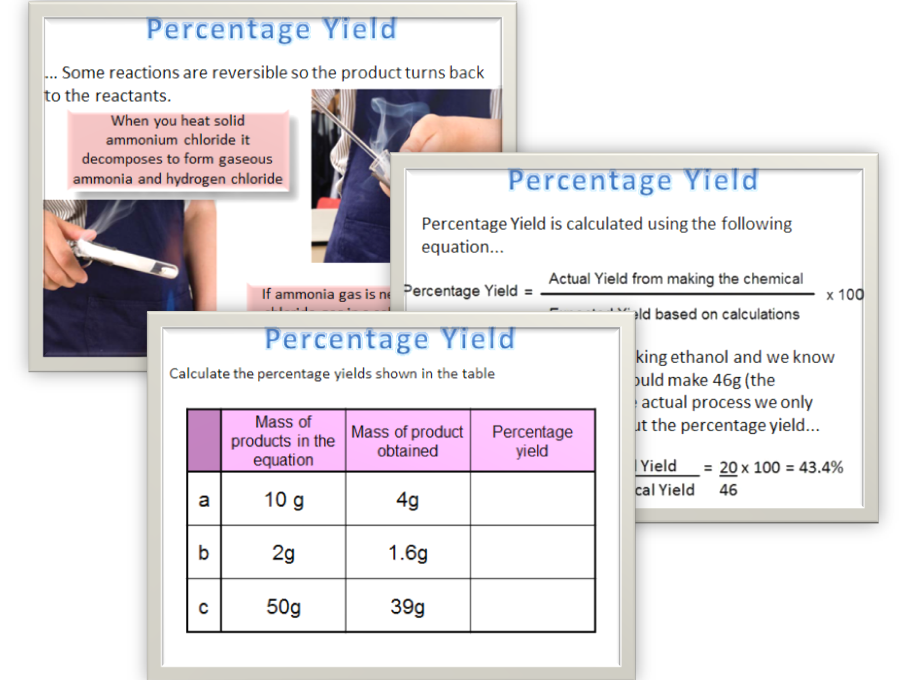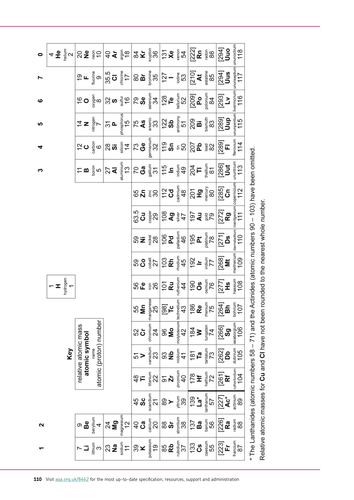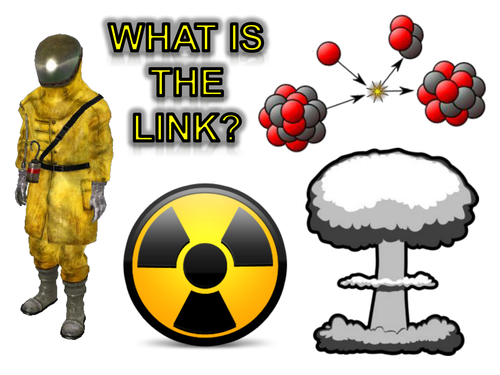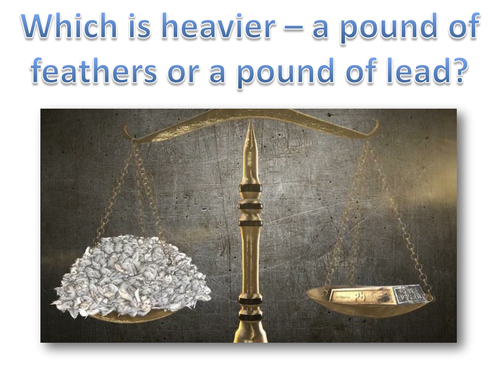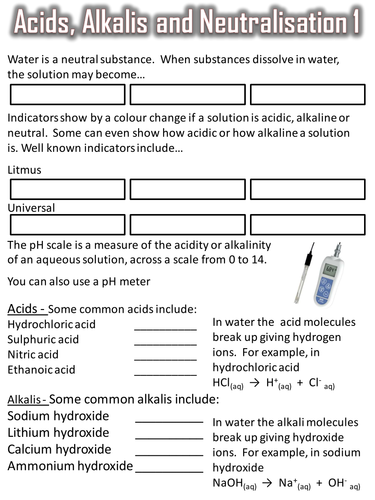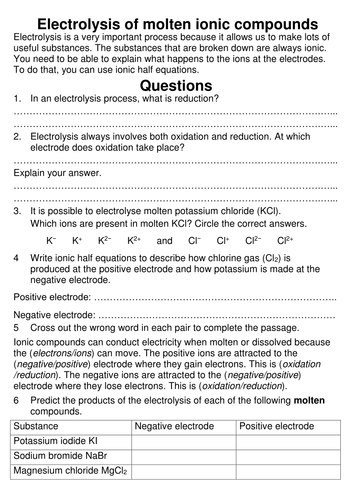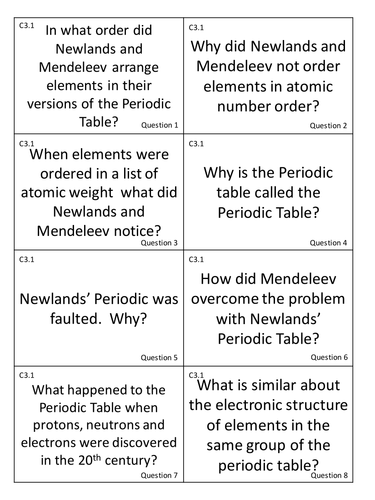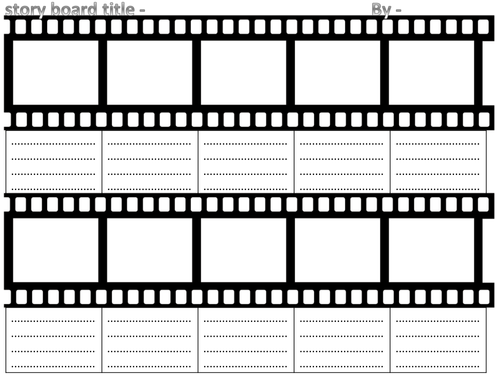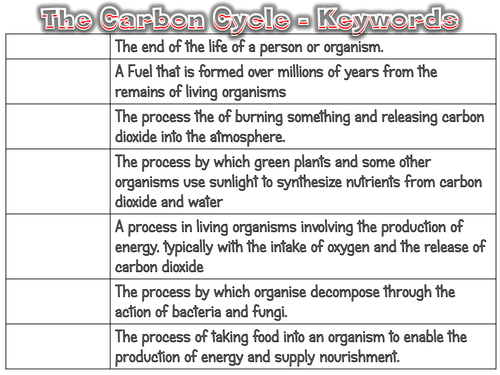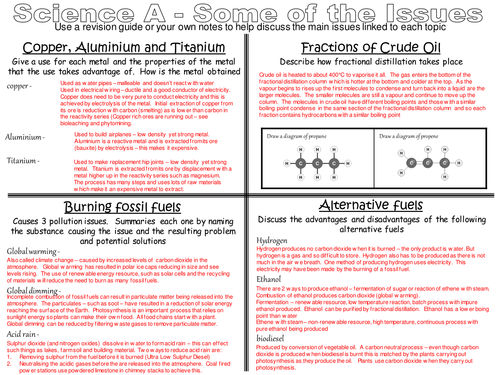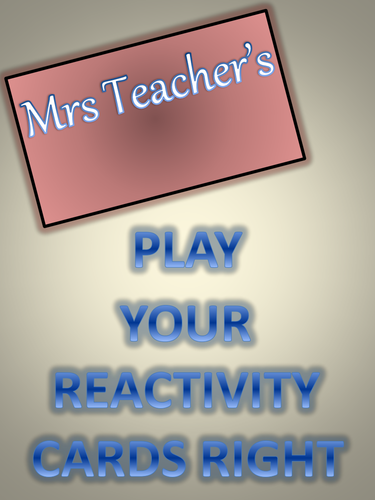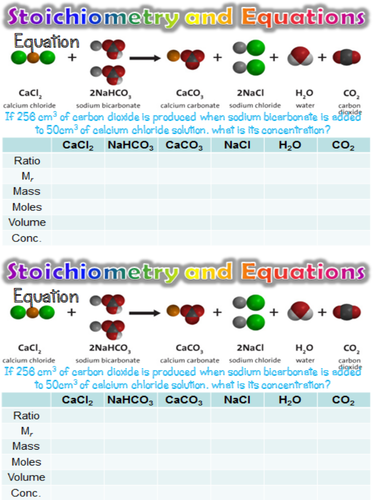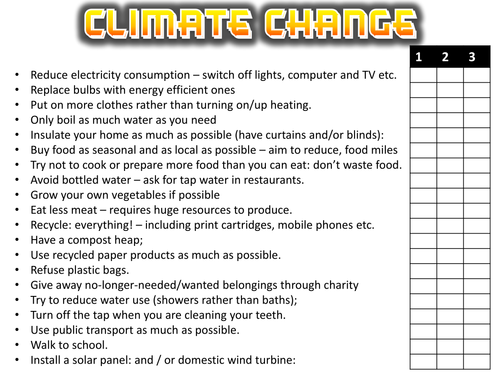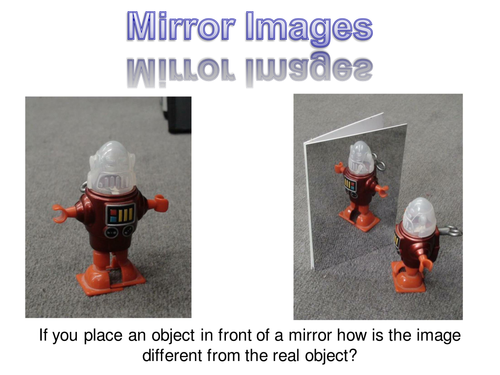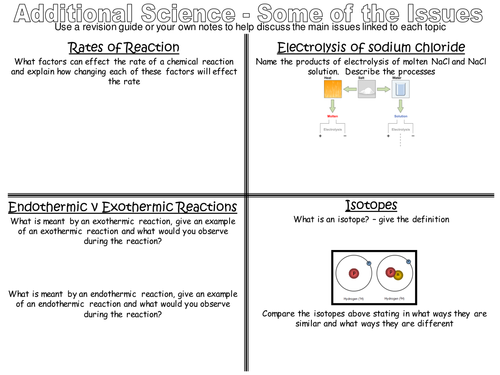
133Uploads
178k+Views
295k+Downloads
All resources

Percentage Yield
A lesson taking pupils through how to calculate percentage yield and the reasons why percentage yields are sometimes lower than expected. There are also some worksheets for pupils to complete. I print this on A5. The final activity is a 6 mark QWC question on sustainable development and percentage yield

An introduction to the Periodic Table - New 2016 GCSE Chemistry
A fully resourced lesson starts with a word search to find elements from the Periodic Table. A quick recap of information students may be aware of from KS3 before discussing groups and periods. There is a colouring activity to label various sections of a Periodic Table that is then used to complete a group activity. A series of questions to challenge understanding is used to secure knowledge before a plenary that ask students to try and talk for as long as possible about what they have learnt about the Periodic Table

Atoms and Radiation
A presentation that links the structure of an atom to what is meant by a stable and unstable nucleus

AQA Physics 2016 - Density (inc. required prac)
A presentation to take students through the theory of density. The presentation also walks pupils through the techniques needed to calculate density for regular and irregular solids and liquids. An adapted version of the AQA required Practical worksheet has also been included.
There is a set of differentiated questions on density calculations and theory to challenge students - the calculation answers are on the presentation.

Acids, bases and neutralisation
Presentations and worksheets for 2 lessons. The first lesson introduces the concept of neutralisation for GCSE and how to write word equations for neutralisation reactions. The second lesson is a practical on the preparation of a sample of a salt by the neutralisation of an acid with a suitable metal.

New AQA Physics/Trilogy - Energy Demands
This lesson links to the new AQA physics / Trilogy GCSE. The resources give pupils the opportunity to use graphs to carry out data analysis and make conclusion from the data they find. The data is linked to domestic and global energy demands and the energy resources we use to provide these needs. One of the tasks includes a group activity where pupils need to present their findings.
There is a starter to summarise environmental issues linked to use of fossil Fuels. The lesson also includes how fossil fuel and nuclear power stations generate electricity where pupils complete a sequencing activity.

Electrolysis of molten ionic compounds
A presentation and a couple of worksheets to guide students through the concept of electrolysis of molten ionic compounds. The presentation reminds pupils of OIL RIG and the electrical conductivity of ionic compounds before tackling the more challenging aspects of the topic

AQA Trilogy - C10 -Finite Resources
How much do we depend on the Earth’s natural resources? - A presentation that poses this question and then gets pupils to interpret graphs. Key terms and ideas are discussed

AQA C3 Revision Flash Cards
5 sets of questions with answers on reverse if printed back to back on the AQA C3 unit. Suitable for all abilities to help recall key facts and concepts. Approx 24 questions for each sub unit. You can purchase all 3 units together as a bundle for £4.50

storyboard
Print out a copy of the story board to get pupils to summarise in words and pictures a topic. The resources is editable so you could add the pictures and get pupils to write out the story or you could add the text and get them to add the drawings. Lots of possibilities and ways to differentiate

The Carbon Cycle
A fully resourced lesson on the carbon cycle. There is a presentation and linked worksheets to create a diagram of the carbon cycle plus appreciate the processes that add and remove carbon dioxide from the atmosphere

Alternative fuels
A lesson looking at the need to find alternative fuels to replace fossil fuels. The advantages and disadvantages of different fuels are considered.

AQA Chemistry revision - C1 misconceptions / Extended writing
A chance for pupils to write extended answers on misconceptions / difficult concepts from C1. I have included a set of sample answers that can also be provided. I sometimes print this on A3 paper and get pupils in small groups to work collaboratively.

Play your reactivity series cards right
Various presentations of the the metals in the reactivity series. The metals are not in the correct order and pupils need to say of the next metal in the presentation will be higher or lower in the reactivity series. Change the first slide to include your name. There are different versions so you can do the activity quickly, more than once. I have also included the correct order so you can show this first. A fun, fast paced stater or plenary resource for KS3 and KS4

AQA The Alkali Metals
Presentation and linked worksheets to teach the subject content of the alkali metals for the new 2016 AQA Trilogy / Chemistry GCSE

Molar Gas Volume and Stoichiometry
Stoichiometry pathway to help pupils with calculations in chemistry. The presentation also covers the topic of molar gas volume.

Climate change
A presentation and worksheet about climate change and how it link to global warming. The presentation has an embedded video and various activites

New GCSE - Cracking Crude Oil
A fully resourced lesson with assessment on the cracking of crude oil. The starter is a data analysis activity that links in to the leaning objective. Cracking of hydrocarbons is covered before pupils are asked questions on the reasons for the process and how it is carried out. The plenary is an assessment question.

Making a Kaleidoscope
An introduction to laws of reflection before instructions on how to make a kaleidoscope. Good for a KS3 or low ability KS4 group. Lots of fun and the disposable mirrors are relatively cheap to get hold of.

AQA Chemistry revision - C2 misconceptions / Extended writing
A chance for pupils to write extended answers on misconceptions / difficult concepts from C2. After using the C1 set, I was asked by my class to create a similar activity for C2 because they had found the C1 set so useful. I have included a set of sample answers that can also be provided.

